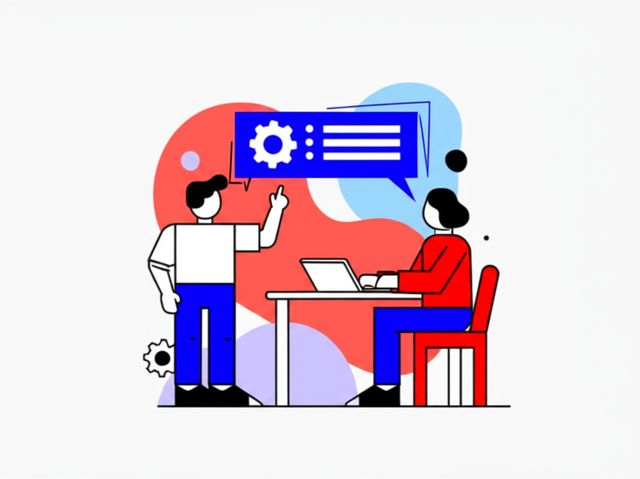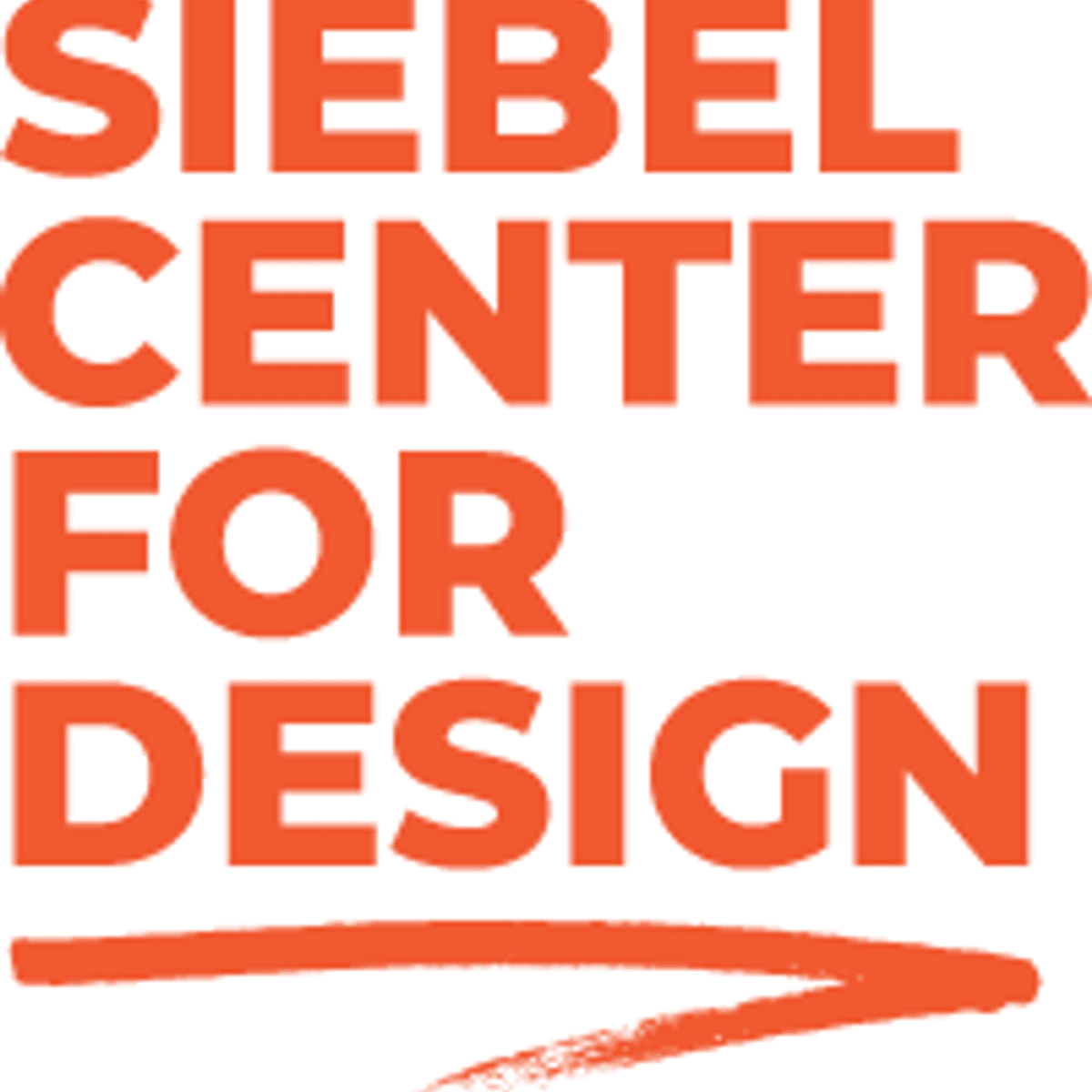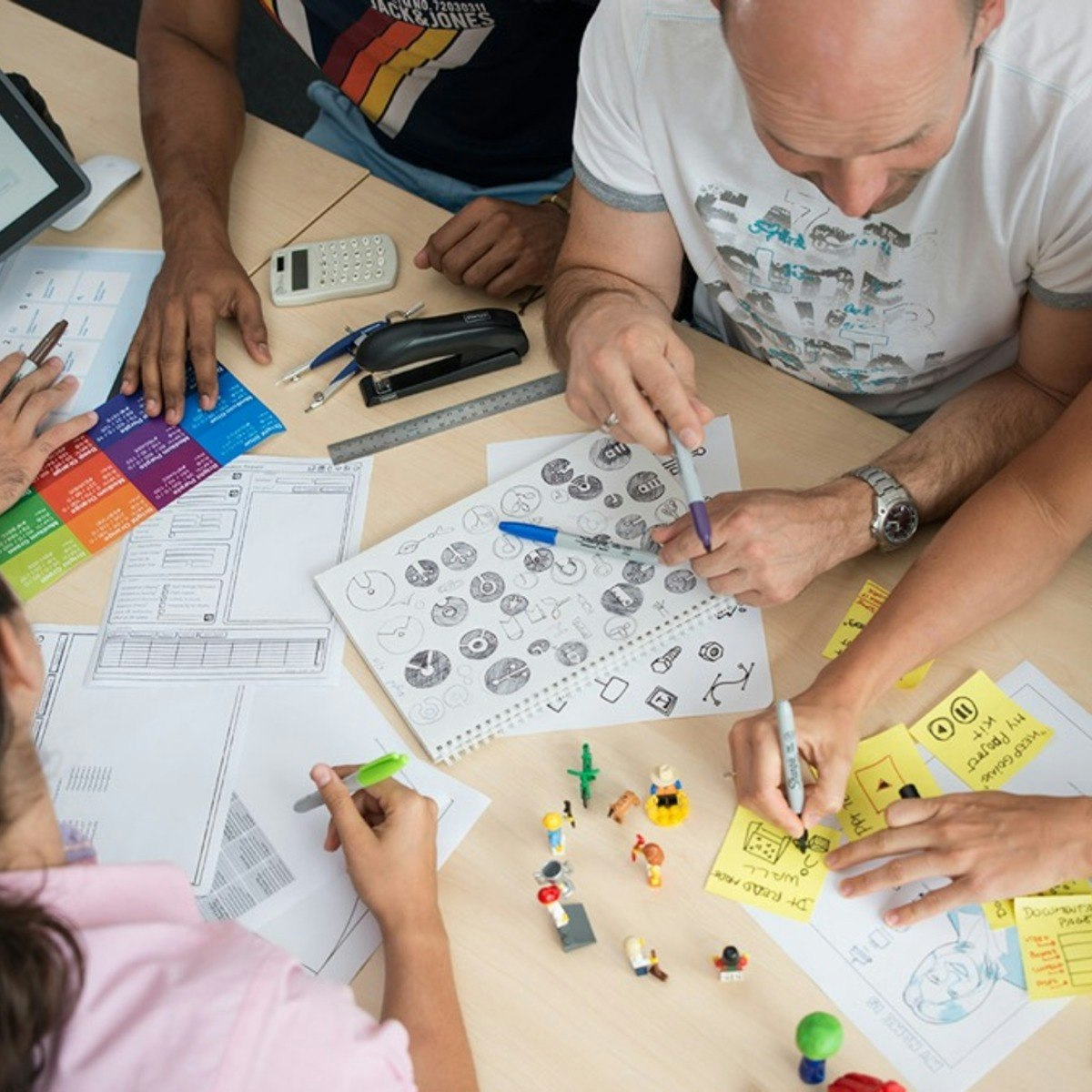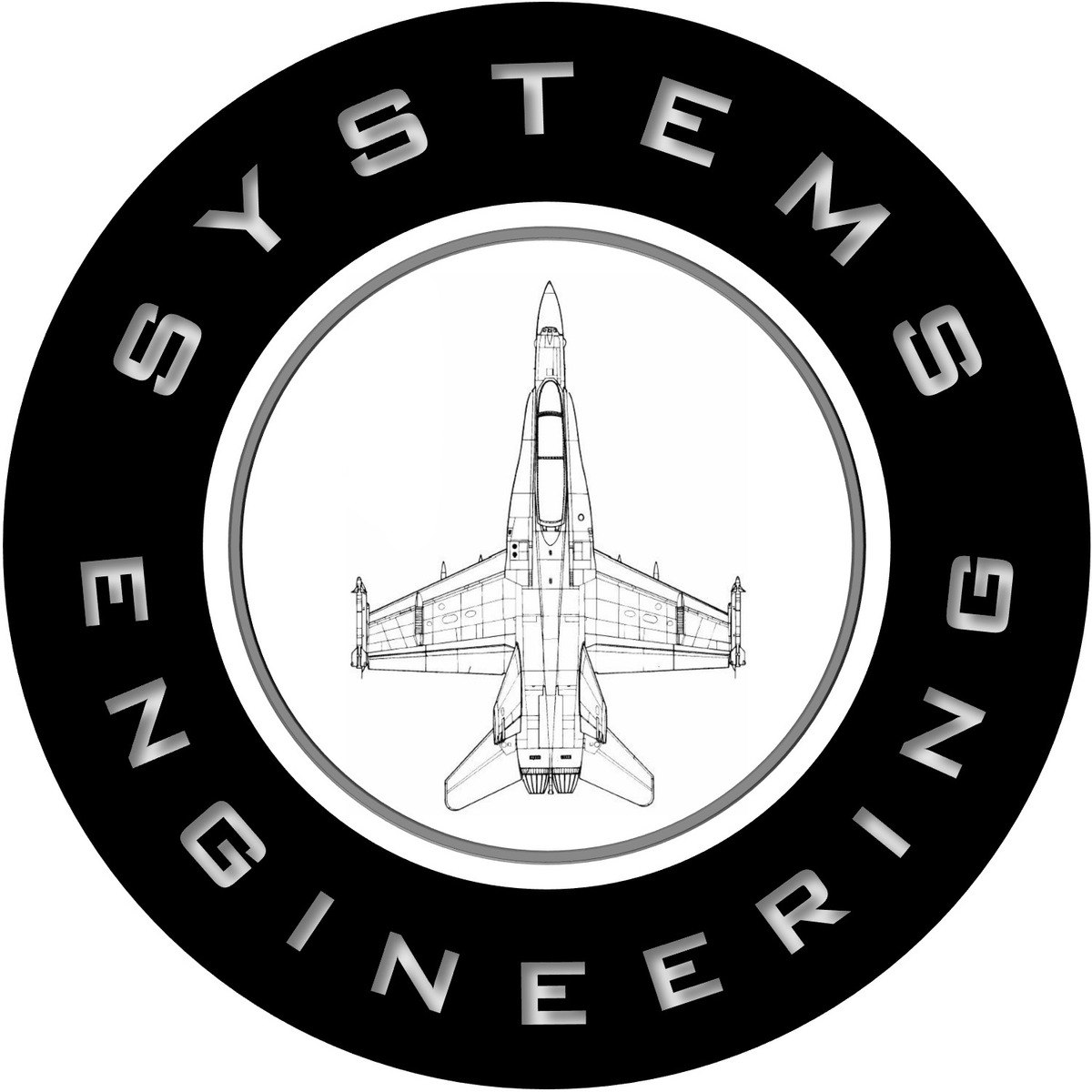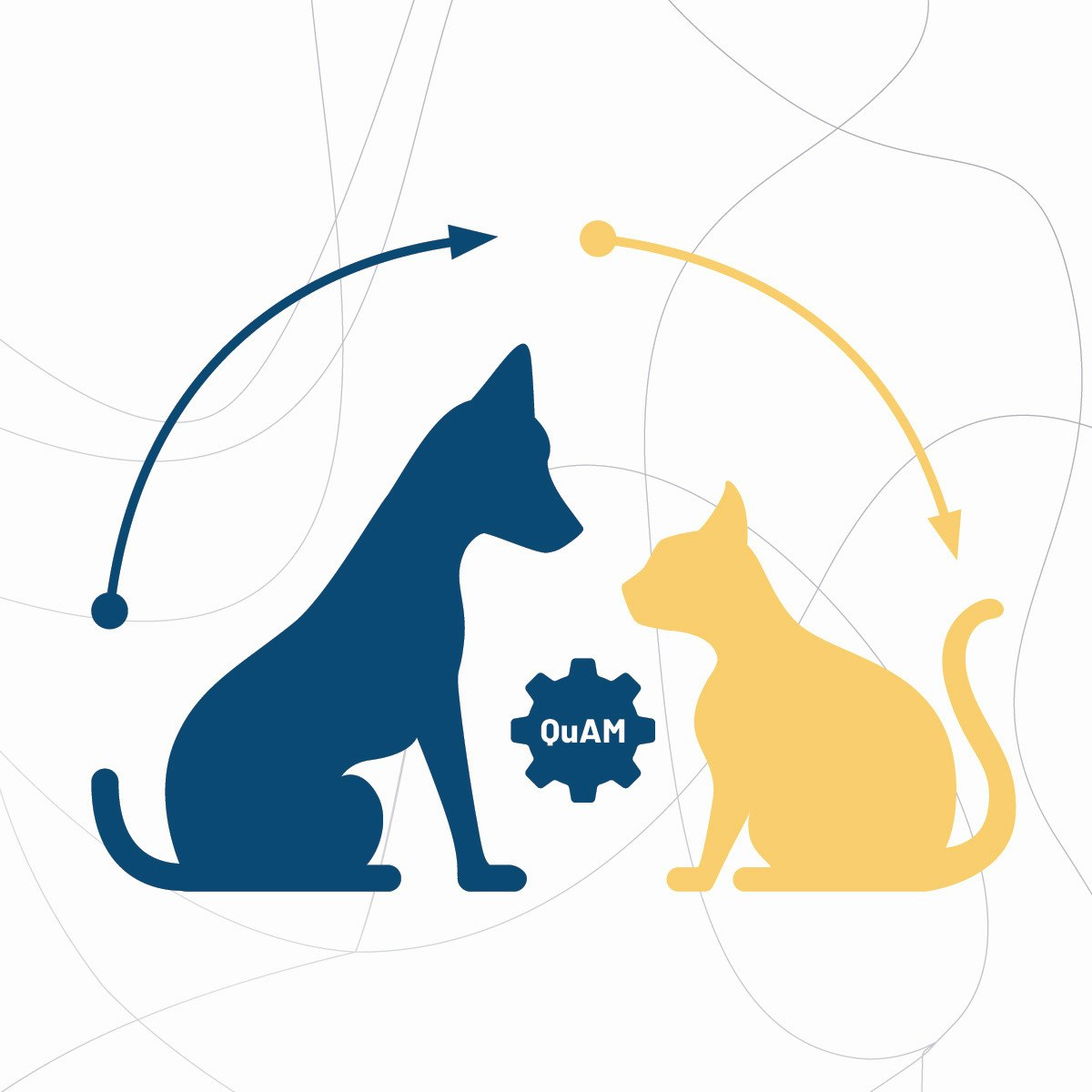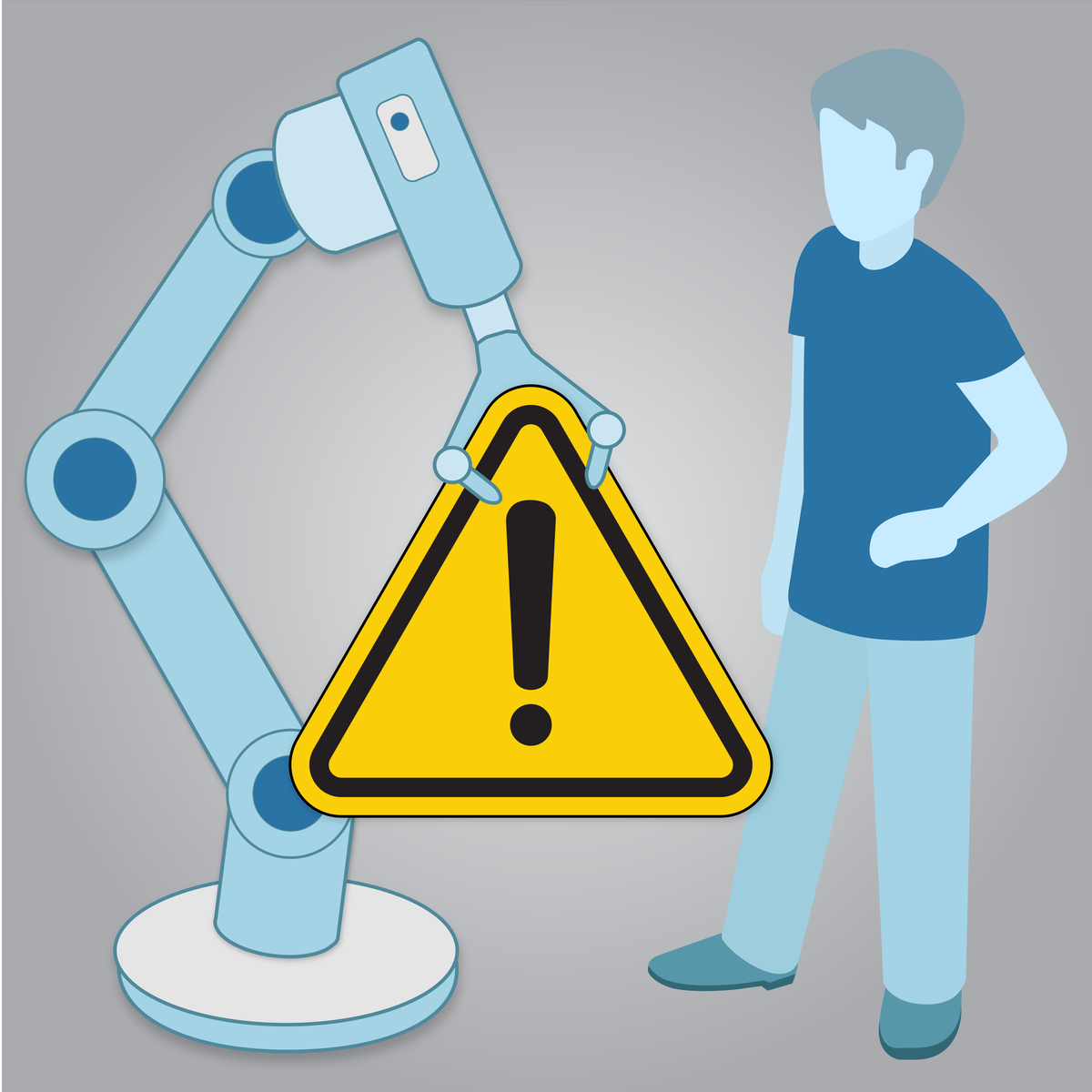Human Factors Engineer
Comprehensive Guide to a Career as a Human Factors Engineer
Human Factors Engineering (HFE) is a fascinating and vital field dedicated to understanding how people interact with technology, products, systems, and environments. At its core, HFE aims to optimize these interactions to enhance safety, improve efficiency, and increase user satisfaction. This is achieved by applying scientific knowledge about human capabilities and limitations to the design process. Imagine designing a complex machine, like an airplane cockpit, or everyday items like a new smartphone app; HFE professionals ensure these are intuitive, safe, and effective for the people using them.
What makes a career in Human Factors Engineering particularly engaging is its multidisciplinary nature, drawing from psychology, engineering, industrial design, and even anatomy. HFE professionals get to be problem-solvers, looking at systems through the lens of human behavior to identify potential issues and design solutions. This could involve anything from reducing the risk of errors in medical device usage to making a software interface more user-friendly or ensuring the layout of a factory floor is both safe and productive. The impact of this work is tangible, contributing to better, safer experiences in countless aspects of our lives.
Introduction to Human Factors Engineering
Human Factors Engineering, sometimes referred to as ergonomics, engineering psychology, or user-centered design, is the discipline of applying scientific knowledge about human capabilities and limitations to the design of systems, products, and environments. The fundamental goal is to create a seamless and effective interaction between people and the things they use, whether it's a physical object, a software interface, or a complex work process. This field plays a critical role in making technology and systems work better for people, rather than forcing people to adapt to poorly designed systems.
For those interested in the foundational principles of human-computer interaction and design, several online courses offer comprehensive introductions. These courses can provide a solid understanding of how to design systems that are both effective and enjoyable for users.
To delve deeper into the practical aspects and theoretical underpinnings of the field, certain books offer invaluable insights. These texts cover a range of topics from basic design principles to advanced interaction design concepts.
Definition and Core Objectives of Human Factors Engineering (HFE)
Human Factors Engineering is fundamentally about designing for people. Its core objective is to optimize the relationship between humans and systems to improve efficiency, enhance safety, and increase user satisfaction. HFE professionals achieve this by studying how people interact with their environment, tools, and technology, and then using these insights to inform design decisions.
The field considers a wide range of human characteristics, including physical capabilities (like strength and reach), cognitive abilities (like perception, memory, and decision-making), and even emotional responses to designs. By understanding these factors, HFE aims to create products and systems that are intuitive to use, minimize the potential for human error, and are comfortable and even enjoyable to interact with. This human-centered approach is what sets HFE apart.
Ultimately, the goal is to design systems that "fit" the user, rather than requiring the user to adapt to the system. This not only leads to better performance and fewer mistakes but also contributes to overall well-being and a more positive user experience. The applications are vast, ranging from the design of everyday consumer products to complex industrial systems and critical healthcare environments.
Exploring the field of human factors can be enhanced through foundational knowledge in cognitive psychology and user-centered design. Online courses can offer structured learning paths in these areas.
Historical Evolution of the Field
The roots of Human Factors Engineering can be traced back to the early 20th century, with significant advancements spurred by the demands of World War II. During this period, the complexity of military equipment, such as aircraft, increased dramatically, leading to a higher incidence of human error. It became clear that designing equipment to better match human capabilities was crucial for operational success and safety.
After the war, these principles began to find applications in various industries beyond the military. The 1970s and 1980s saw a significant expansion, particularly with the rise of computers and the popularization of the graphical user interface (GUI). This era marked the growth of cognitive ergonomics, which focuses on mental processes like perception, memory, and decision-making in the context of human-system interaction.
A pivotal moment for the field, particularly in healthcare, was the 1999 Institute of Medicine report, "To Err is Human," which highlighted the alarming number of patient deaths due to medical errors. This report underscored the urgent need for HFE principles in designing safer medical devices and healthcare systems. Consequently, regulatory bodies like the FDA began publishing guidance on incorporating human factors into medical device development. More recently, the field has been evolving with advancements in technologies like artificial intelligence (AI), virtual reality (VR), and robotics, opening new avenues for research and application.
Understanding the history and evolution of a field provides context for its current practices. For those interested in how design interacts with human cognition and culture, courses exploring these intersections can be beneficial.
Key Principles: Usability, Safety, Efficiency in System Design
Three key principles underpin the practice of Human Factors Engineering: usability, safety, and efficiency. These principles guide the design and evaluation of products, systems, and environments to ensure they are effective and well-suited for human use.
Usability refers to the ease with which people can use a product or system to achieve their goals. A usable design is intuitive, easy to learn, and allows users to perform tasks effectively and without frustration. HFE professionals employ various methods, like usability testing, to assess and improve the usability of designs. Safety is a paramount concern in HFE, especially in safety-critical domains like healthcare, aviation, and industrial control. The goal is to design systems that minimize the likelihood of human error and mitigate the consequences if errors do occur. This involves understanding potential hazards, designing for error tolerance, and providing clear feedback to users. Efficiency relates to the ability of users to accomplish tasks quickly, accurately, and with minimal effort. An efficient design streamlines workflows, reduces unnecessary steps, and supports productivity. HFE seeks to optimize the interaction between humans and systems to enhance overall system performance. These principles are interconnected and often work in concert to create designs that are not only functional but also safe and satisfying to use.For learners wanting to explore the practical application of these principles, especially in evaluating and improving designs, there are courses that focus on user testing and interface evaluation.
Relationship to Ergonomics, Psychology, and Engineering
Human Factors Engineering is an inherently interdisciplinary field, drawing knowledge and methodologies from several related disciplines. Understanding these connections helps to appreciate the breadth and depth of HFE.
Ergonomics is often used interchangeably with Human Factors, particularly in Europe. While there are subtle distinctions (ergonomics sometimes emphasizes physical aspects like posture and workplace layout, while human factors might also strongly focus on cognitive aspects), both share the common goal of designing for human well-being and performance. Many HFE professionals also identify as ergonomists. Psychology provides a critical foundation for HFE, particularly cognitive psychology, which studies mental processes such as perception, attention, memory, decision-making, and problem-solving. Understanding these psychological principles is essential for designing interfaces that are easy to understand, information that is easy to process, and systems that support effective decision-making. Experimental psychology methods are also heavily used in HFE research and evaluation. Engineering disciplines, such as industrial engineering, mechanical engineering, and systems engineering, contribute the technical expertise needed to design and build the systems that HFE professionals help to optimize. HFE bridges the gap between the "hard" sciences of engineering and the "soft" sciences of psychology, ensuring that technical solutions are also human-centered. This collaboration is key to developing products and systems that are both technologically sound and well-suited for human use.To gain a broader perspective on how these fields intersect, exploring courses in ergonomics and introductory psychology can be highly beneficial. These courses provide foundational knowledge relevant to HFE.
Core Competencies and Skills
A successful career in Human Factors Engineering requires a blend of technical prowess, human-centered understanding, and strong collaborative abilities. These competencies enable HFE professionals to effectively analyze complex systems, understand user needs, and develop solutions that enhance performance and safety.
The field demands a unique combination of analytical thinking and empathetic insight. Professionals must be able to dissect intricate processes and technologies while simultaneously considering the cognitive and physical experiences of the end-users. This dual focus is what allows HFE to bridge the gap between technology and humanity.
Developing a strong foundation in human-centered design and user research is crucial. Online courses can offer practical skills and theoretical knowledge in these areas.
Technical Skills
Technical proficiency is a cornerstone of Human Factors Engineering. This includes familiarity with various tools and techniques used in design, analysis, and evaluation. For instance, knowledge of Computer-Aided Design (CAD) software can be valuable for visualizing and developing physical products and workspaces.
Statistical analysis skills are also critical for interpreting research data, evaluating the effectiveness of designs, and making data-driven decisions. HFE professionals often conduct experiments and user studies, and the ability to analyze the resulting quantitative data is essential. Furthermore, experience with prototyping tools, both for physical and digital interfaces, allows for the rapid creation and iteration of design concepts. These tools help translate ideas into tangible forms that can be tested with users.
For those looking to build technical skills, courses focusing on prototyping and user testing methodologies offer practical training. These skills are directly applicable in HFE roles.
Human-Centered Skills
Beyond technical abilities, skills centered on understanding human behavior and experience are paramount in HFE. User research is a fundamental activity, involving techniques such as interviews, surveys, and direct observation to gather insights into user needs, behaviors, and pain points. The ability to conduct effective user research is key to ensuring that designs are truly user-centered.
A strong grounding in cognitive psychology helps HFE professionals understand how people perceive information, learn, make decisions, and interact with systems. This knowledge informs the design of intuitive interfaces, effective training materials, and systems that minimize cognitive load. Empathy and the ability to see the world from the user's perspective are also crucial soft skills that enable HFE practitioners to design solutions that genuinely meet user needs.
Courses that explore user research methods and the psychological aspects of design can significantly enhance one's human-centered skills. These are vital for anyone aspiring to work in HFE.
Regulatory Knowledge
In many industries where Human Factors Engineers work, adherence to regulations and standards is critical. This is particularly true in sectors like healthcare, aviation, and nuclear power, where safety is paramount. For example, HFE professionals involved in designing medical devices must be familiar with guidelines from regulatory bodies such as the U.S. Food and Drug Administration (FDA).
Understanding relevant industry standards, such as ISO 9241 for ergonomics of human-system interaction, or specific national guidelines like those from Transport for NSW, is also important. This knowledge ensures that designs not only meet user needs but also comply with legal and safety requirements. Staying updated on evolving regulations is an ongoing part of the job for many HFE practitioners.
While specific regulatory knowledge is often gained on the job or through specialized training, understanding the importance of safety and standards in design is fundamental. Courses touching upon safety in various engineering contexts can be a good starting point.
Interdisciplinary Collaboration Strategies
Human Factors Engineering rarely happens in isolation. HFE professionals typically work as part of multidisciplinary teams that may include engineers from various specializations, designers, software developers, project managers, and other stakeholders. Therefore, strong communication and collaboration skills are essential.
The ability to clearly articulate HFE principles and design recommendations to team members from different backgrounds is crucial. This often involves translating complex human factors concepts into language that is understandable and actionable for engineers and designers. Effective HFE practitioners are skilled at fostering a shared understanding of user needs and advocating for user-centered design approaches throughout the development lifecycle. They act as a bridge between the user and the design team.
Developing strong communication and teamwork skills is beneficial for any collaborative field. Courses that emphasize project-based learning or teamwork can help hone these abilities.
Formal Education Pathways
Embarking on a career in Human Factors Engineering typically involves a structured educational journey. While diverse academic backgrounds can lead to this field, certain degree paths are more common and provide the foundational knowledge necessary for success. Understanding these pathways is crucial for aspiring HFE professionals.
The educational landscape for HFE can vary, with options ranging from undergraduate specializations to dedicated graduate programs. The choice often depends on career goals, with research-intensive roles sometimes requiring more advanced degrees.
Exploring the fundamentals of engineering and psychology through introductory online courses can be a good starting point for students considering HFE. These courses can help build a foundational understanding before committing to a specific degree program.
Undergraduate Degrees
While dedicated undergraduate degrees in Human Factors Engineering are less common than graduate programs, several related bachelor's degrees can provide an excellent foundation for this career path. Degrees in psychology, particularly with a focus on cognitive psychology or experimental psychology, are a popular entry point. These programs equip students with an understanding of human behavior, perception, and cognition.
Another common route is through industrial engineering programs. Industrial engineering often incorporates principles of ergonomics and work design, which align closely with HFE. Some universities may offer concentrations or elective tracks in human factors or ergonomics within their industrial engineering curricula. Degrees in biomechanics, kinesiology, or even industrial design can also serve as relevant starting points, providing knowledge about human physical capabilities or design principles, respectively. Students interested in HFE should look for undergraduate programs that offer coursework in statistics, research methods, and ideally, an introduction to human factors or ergonomics.
For students exploring undergraduate options, introductory courses in psychology and design can offer valuable insights into the core concepts of HFE.
Graduate Programs
A master's degree is often the typical entry-level qualification for Human Factors Engineering roles. Many universities offer specialized Master of Science (M.S.) or Master of Arts (M.A.) degrees in Human Factors, Ergonomics, Engineering Psychology, or Human-Computer Interaction. These programs provide in-depth knowledge and practical skills in HFE methodologies, research techniques, and application areas.
Graduate programs in HFE often include a combination of coursework, research projects, and sometimes a thesis or practicum. A practicum or internship component can be particularly valuable, offering real-world experience in applying HFE principles. Curricula typically cover topics such as cognitive ergonomics, physical ergonomics, research methods, statistical analysis, system safety, and user interface design. Some programs may offer specializations in areas like healthcare human factors, aviation human factors, or usability engineering.
Prospective graduate students can explore online courses to get a taste of advanced topics in human-computer interaction and cognitive science. This can help in making an informed decision about pursuing a specialized master's degree.
PhD Trajectories
For individuals interested in pursuing advanced research, academic careers, or highly specialized roles, a Doctor of Philosophy (Ph.D.) in Human Factors or a related field is the typical path. Ph.D. programs are research-intensive and culminate in a dissertation that makes an original contribution to the field.
Research focus areas for Ph.D. candidates in HFE can be diverse and often align with the expertise of faculty within a particular program. Examples include aviation human factors, which might explore pilot performance or air traffic control systems; healthcare human factors, focusing on medical device usability or patient safety; human-computer interaction, investigating novel interface designs or user experience; or neuroergonomics, which uses neuroscience methods to study human performance and cognition in work contexts. A Ph.D. generally prepares individuals for leadership roles in research, academia, or specialized consulting.
While Ph.D. level study requires a significant commitment, individuals can explore advanced concepts through specialized online courses. Topics like computational vision or human-robot interaction can provide a glimpse into research-oriented areas within HFE.
Accreditation Bodies and Program Rankings
When selecting an educational program in Human Factors Engineering, it's beneficial to consider accreditation. In the United States, the Human Factors and Ergonomics Society (HFES) is a key professional organization that accredits graduate programs in human factors/ergonomics. HFES accreditation signifies that a program meets certain standards of quality and curriculum content.
While formal rankings of HFE programs can be subjective and vary, prospective students can research programs based on faculty expertise, research opportunities, alumni outcomes, and alignment with their specific career interests. HFES provides resources and a directory of accredited programs, which can be a valuable starting point for identifying reputable educational institutions. Consulting with professionals already in the field can also provide insights into well-regarded programs.
Students considering HFE programs can benefit from understanding the breadth of the field. Exploring related areas such as Industrial Design or Psychology on OpenCourser can provide a broader context.
Career Progression in Human Factors Engineering
A career in Human Factors Engineering offers diverse opportunities for growth and advancement. Professionals can progress from entry-level positions to more senior and leadership roles, and even transition into related fields. The specific trajectory often depends on individual skills, experience, industry, and educational background.
The demand for HFE expertise is growing across various sectors, creating a dynamic job market. This growth is driven by the increasing recognition of the value of user-centered design in creating successful and safe products and systems.
Understanding the fundamentals of user experience and design is crucial for anyone starting a career in HFE. Online courses can provide essential knowledge and skills in these areas.
Entry-Level Roles
Individuals typically enter the Human Factors Engineering field in roles such as Usability Analyst, Ergonomics Consultant, Human Factors Associate, or Junior Human Factors Engineer. In these positions, they often work under the guidance of more experienced professionals, contributing to user research, usability testing, data analysis, and design documentation.
Entry-level roles provide valuable hands-on experience in applying HFE methodologies to real-world projects. Responsibilities might include conducting literature reviews, preparing test protocols, recruiting participants for studies, observing user interactions, and assisting in the development of design recommendations. These roles are crucial for building a strong foundation in the practical aspects of the field and developing core competencies.
For those preparing for entry-level roles, courses focusing on usability testing and evaluation are highly relevant. These provide practical skills that are directly applicable in an analyst or consultant capacity.
Mid-Career
With several years of experience, Human Factors Engineers can advance to mid-career roles such as Senior Human Factors Specialist, Project Lead, or Human Factors Team Lead. In these positions, they take on greater responsibility for planning and executing HFE projects, managing junior staff, and interacting with clients or stakeholders.
Mid-career professionals are often expected to have a deeper understanding of specific HFE domains or industries. They may lead complex user research initiatives, oversee the design and execution of usability studies, and play a key role in translating research findings into actionable design solutions. Strong project management, communication, and leadership skills become increasingly important at this stage.
Professionals looking to advance to mid-career roles can benefit from courses that enhance their leadership and project management capabilities, as well as deepen their expertise in specialized HFE areas.
Leadership Paths
Experienced Human Factors professionals with a strong track record of success can move into leadership positions. These roles might include Human Factors Department Director, Manager of Usability/UX, or Regulatory Affairs Manager with a focus on human factors. Leadership roles involve setting strategic direction for HFE activities within an organization, managing budgets and resources, mentoring staff, and representing the HFE function at an executive level.
These positions require not only deep expertise in HFE but also strong business acumen, strategic thinking, and the ability to influence organizational culture to prioritize user-centered design. Leaders in HFE often play a critical role in ensuring that human factors considerations are integrated throughout the product development lifecycle and contribute to the overall success of the organization.
Aspiring leaders in HFE can explore advanced topics and strategic thinking through resources like the Management and Professional Development sections on OpenCourser.
Transitioning to Adjacent Fields
The skills and knowledge gained as a Human Factors Engineer are highly transferable to several adjacent fields. This provides flexibility and diverse career options for HFE professionals. One common transition is into User Experience (UX) Design. Since HFE and UX design share a strong focus on understanding user needs and creating intuitive interfaces, this is often a natural progression. Many HFE professionals may already perform tasks that overlap significantly with UX design.
Another related field is Product Management. HFE professionals' deep understanding of user needs, combined with their analytical and problem-solving skills, can make them effective product managers who can guide the development of user-centered products. Other potential transitions could be into roles focused on accessibility, safety engineering, or even research in academic or industrial settings, depending on an individual's specific interests and expertise.
For those considering a transition to related fields, exploring courses in UX design or product design can provide valuable insights and skills.
Industry Applications and Trends
Human Factors Engineering finds application across a wide array of industries, reflecting its versatility and the universal need for user-centered design. As technology continues to evolve and permeate every aspect of life, the role of HFE is becoming increasingly crucial in ensuring that these advancements are beneficial and accessible to humans.
The field is also characterized by ongoing trends and emerging areas, driven by technological innovation and a growing understanding of human-technology interaction. Staying abreast of these developments is key for HFE professionals.
Exploring specific industry applications through targeted online courses can provide valuable context. For example, understanding HFE in healthcare or transportation requires domain-specific knowledge.
Healthcare
The healthcare industry is a major area for Human Factors Engineering, with a strong emphasis on improving patient safety and the usability of medical devices. HFE professionals in healthcare work on designing medical equipment, electronic health record (EHR) systems, and clinical workflows that are intuitive for healthcare providers to use, thereby reducing the risk of medical errors.
A significant focus is on medical device usability testing, ensuring that devices like infusion pumps, ventilators, and diagnostic equipment can be operated safely and effectively by clinicians, often under high-stress conditions. Human factors principles are also applied to the design of hospital environments, aiming to optimize them for both patient well-being and staff efficiency. The ultimate goal is to enhance patient outcomes and improve the overall quality of care.
Courses focusing on medical device design, patient safety, or healthcare systems can provide specialized knowledge for those interested in HFE in the healthcare sector.
Transportation
The transportation sector, including aviation, automotive, and rail, has long been a key area for Human Factors Engineering. Safety is paramount in transportation, and HFE plays a crucial role in designing systems that minimize human error and enhance operator performance. In aviation, this includes the design of cockpit interfaces, air traffic control systems, and pilot training programs.
In the automotive industry, HFE professionals work on the design of vehicle interiors, dashboard displays, and advanced driver-assistance systems (ADAS) to ensure they are intuitive and do not distract the driver. With the rise of autonomous vehicles, HFE is also critical in understanding how humans will interact with and supervise these complex systems. Similar principles apply to rail transport, focusing on train control systems and operator interfaces.
For those interested in the transportation domain, courses related to automotive engineering, aviation safety, or human-robot interaction can be beneficial.
Tech: AR/VR User Experience Optimization
The technology industry, particularly in the realms of consumer electronics, software, and emerging technologies like Augmented Reality (AR) and Virtual Reality (VR), heavily relies on Human Factors Engineering to create engaging and user-friendly experiences. HFE professionals in tech focus on designing intuitive user interfaces (UIs), optimizing user experience (UX) for software applications, websites, and mobile devices.
A growing area is the AR/VR user experience optimization. As these immersive technologies become more prevalent, ensuring that interactions within virtual and augmented environments are comfortable, intuitive, and avoid issues like motion sickness is a key challenge for HFE. This involves understanding how users perceive and interact with 3D spaces and designing interfaces that leverage the unique capabilities of these platforms.
Individuals interested in the tech applications of HFE, especially in AR/VR, can explore courses on interface design, user experience for emerging technologies, and even avatar psychology.
Emerging Areas: AI Explainability and Human-AI Collaboration
The rapid advancement of Artificial Intelligence (AI) presents both exciting opportunities and new challenges for Human Factors Engineering. One significant emerging area is AI explainability. As AI systems become more complex and make autonomous decisions, it's crucial that humans can understand how these systems arrive at their conclusions. HFE professionals are working on designing interfaces and interactions that make AI decision-making processes more transparent and interpretable to users.
Another key trend is human-AI collaboration. Instead of AI replacing humans, the focus is shifting towards designing systems where humans and AI can work together effectively, leveraging the strengths of both. This involves understanding how to best integrate AI into human workflows, designing appropriate levels of automation, and ensuring that humans can effectively supervise and interact with AI partners. These areas highlight the evolving role of HFE in shaping our interaction with intelligent technologies.
The intersection of AI and human factors is a cutting-edge field. Courses on AI, machine learning, and human-robot interaction can provide foundational knowledge for exploring these emerging areas.
Ethical Considerations in Human Factors Engineering
The work of Human Factors Engineers often has significant implications for individuals and society, making ethical considerations an integral part of the profession. Designing systems that are safe, fair, and respectful of users requires a keen awareness of potential ethical pitfalls and a commitment to responsible design practices.
HFE professionals must navigate complex ethical dilemmas, balancing the needs of users with business objectives and societal values. This includes ensuring that designs do not perpetuate bias, compromise privacy, or create undue risks for users. Adherence to ethical guidelines and professional codes of conduct is crucial for maintaining public trust and ensuring the responsible application of HFE principles.
Understanding ethical principles in research and design is vital. Courses that touch upon research ethics or the societal impact of technology can provide a valuable foundation.
Bias Mitigation in User Testing
User testing is a cornerstone of Human Factors Engineering, providing critical insights into how well a design meets user needs. However, if not conducted carefully, user testing can be susceptible to various forms of bias, which can lead to skewed results and ultimately, designs that are not truly inclusive or effective for all intended users.
HFE professionals must be diligent in mitigating bias in all stages of user testing. This includes ensuring diverse and representative participant samples that reflect the target user population in terms of age, gender, cultural background, abilities, and other relevant characteristics. It also involves crafting test scenarios and questions that are neutral and do not lead participants, and being mindful of observer bias during test sessions. Recognizing and actively working to counteract potential biases is an ethical imperative to ensure that design decisions are based on fair and accurate data.
Courses on research methods and user testing often cover aspects of bias and how to design more objective studies. This knowledge is crucial for ethical and effective HFE practice.
Safety-Critical System Accountability
In domains where system failures can have catastrophic consequences, such as aviation, healthcare, and nuclear power, the accountability for safety-critical systems is a profound ethical concern for Human Factors Engineers. HFE professionals play a key role in designing these systems to be as safe and error-tolerant as possible.
This involves not only meticulous design and testing but also considering the entire socio-technical system, including procedures, training, and organizational culture. Ethical HFE practice in these contexts demands a rigorous approach to risk assessment, a commitment to learning from incidents and near-misses, and transparency in communicating potential risks. Ensuring that accountability is clearly defined and that systems are designed to support safe operations is a core ethical responsibility.
Understanding safety engineering principles and risk management is vital for HFE professionals working with safety-critical systems. Specialized courses in these areas can provide important insights.
Privacy Concerns in Behavioral Data Collection
Human Factors Engineering often involves collecting data about user behavior, preferences, and performance. This data is invaluable for understanding user needs and evaluating designs. However, the collection and use of behavioral data also raise significant privacy concerns, which HFE professionals must address ethically.
It is essential to obtain informed consent from participants, clearly explaining what data will be collected, how it will be used, and how it will be protected. Anonymizing data where possible and implementing robust data security measures are crucial. HFE professionals have an ethical obligation to respect user privacy and to use collected data responsibly, solely for the purpose of improving designs and user experiences, and not for discriminatory or exploitative purposes. Navigating the ethical landscape of data privacy is an increasingly important aspect of the field.
Courses on data ethics, privacy, and security are becoming increasingly relevant as data collection becomes more pervasive in HFE and related fields.
Global Standards Compliance
In an increasingly interconnected world, Human Factors Engineers often work on products and systems that will be used by diverse populations across different countries and cultures. Adherence to global standards and regulations is therefore an important ethical and practical consideration.
International standards, such as those developed by the International Organization for Standardization (ISO), like ISO 9241 on ergonomics of human-system interaction, provide a common framework for designing usable and accessible products. Compliance with these standards not only helps ensure a baseline level of quality and safety but also facilitates international trade and market access. HFE professionals should strive to be aware of and apply relevant global and regional standards in their work, promoting consistency and best practices across different contexts.
Understanding international standards is often part of advanced HFE education and professional development. Familiarity with resources from organizations like ISO is beneficial.
Tools and Methodologies
Human Factors Engineers employ a diverse toolkit of methods and technologies to analyze human-system interactions, identify usability issues, and design effective solutions. These tools range from analytical frameworks and simulation software to specialized measurement devices and established testing protocols. Understanding and proficiently using these tools are key to successful HFE practice.
The selection of appropriate tools and methodologies often depends on the specific project goals, the stage of the design process, and the context of use. HFE professionals must be adept at choosing the right approach to gather relevant data and generate actionable insights.
Many online courses introduce fundamental HFE tools and methods, particularly in the context of user research and usability evaluation. These can provide a good starting point for aspiring HFE professionals.
Task Analysis Frameworks
Task analysis is a fundamental methodology in Human Factors Engineering used to understand the steps users take to achieve specific goals, the information they need, and the decisions they make. Several structured frameworks exist to guide this process. Hierarchical Task Analysis (HTA) is a common approach that breaks down tasks into a hierarchy of goals, sub-goals, and operations.Other specialized frameworks like HEART (Human Error Assessment and Reduction Technique) or SHERPA (Systematic Human Error Reduction and Prediction Approach) are used for identifying potential human errors and their causes, particularly in safety-critical systems. Cognitive Task Analysis (CTA) delves deeper into the mental processes involved in performing tasks, such as decision-making, problem-solving, and situation awareness. These frameworks provide systematic ways to analyze tasks and identify areas for design improvement.
Courses focusing on user research, interaction design, or cognitive ergonomics often introduce the principles of task analysis. These are essential skills for understanding user behavior.
Simulation Software
Simulation software plays an increasingly important role in Human Factors Engineering, allowing designers to model and test human-system interactions in virtual environments before physical prototypes are built. Tools like AnyLogic or HumanCAD enable the creation of dynamic models that can simulate human behavior, workload, and performance in various scenarios.
These simulations can be used to evaluate different design alternatives, identify potential bottlenecks or safety hazards, and assess the impact of changes to a system or process. For example, simulation can be used to model pedestrian flow in a public space, operator workload in a control room, or the accessibility of a workstation design. The ability to conduct "what-if" analyses in a simulated environment can save time and resources in the design process.
While direct experience with specialized simulation software often comes with advanced training or on-the-job experience, understanding the principles of modeling and simulation is valuable. Courses in systems engineering or operations research may touch upon these concepts.
Eye-Tracking and Biometric Measurement Tools
To gain deeper insights into user attention, cognitive load, and emotional responses, Human Factors Engineers sometimes utilize specialized measurement tools. Eye-tracking systems, for example, can record where users are looking on a screen or in a physical environment, providing valuable data on visual attention and information processing. This can help identify which elements of a design are most salient or where users might be encountering difficulties.
Other biometric measurement tools, such as those that measure heart rate, skin conductance (to assess stress or arousal), or brain activity (e.g., EEG), can provide objective data on physiological responses to designs. While these tools require careful interpretation and are often used in research settings or for detailed usability evaluations, they can offer rich, quantitative data to complement observational methods.
Understanding the principles of human perception and cognition is foundational to interpreting data from such tools. Courses in cognitive psychology or physiological psychology can be relevant.
Usability Testing Protocols
Usability testing is a core methodology in HFE for evaluating how easy and effective a product or system is to use. HFE professionals follow established protocols to ensure that testing is conducted systematically and yields reliable results. There are different types of usability testing, each suited to different stages of the design process and research questions. Formative usability testing is typically conducted early and iteratively during the design process. Its goal is to identify usability problems and gather feedback to inform design improvements. Prototypes are often used in formative testing. Summative usability testing is usually conducted later in the development cycle, often with a more mature version of the product. Its purpose is to evaluate the overall usability of the system against predefined benchmarks or to compare it with competitors. Clear protocols for task selection, participant recruitment, data collection, and analysis are essential for effective usability testing.Numerous online courses cover the fundamentals and practical aspects of usability testing. These are highly recommended for anyone looking to enter the HFE or UX fields.
Online Learning and Professional Development
For those seeking to enter the field of Human Factors Engineering, pivot from another career, or enhance their existing skills, online learning and professional development offer flexible and accessible pathways. The digital landscape provides a wealth of resources, from comprehensive courses to specialized microcredentials, catering to diverse learning needs and career stages.
Online platforms like OpenCourser make it easy to find and compare a vast array of courses from various providers, helping learners identify opportunities that align with their goals. Whether you are building foundational knowledge or seeking advanced specialization, online learning can be a powerful tool for career advancement in HFE.
OpenCourser's Learner's Guide offers valuable articles on how to make the most of online education, including tips on creating a self-structured curriculum and staying disciplined in your studies.
Microcredentials in User Experience Research
For professionals looking to gain specific, targeted skills in areas highly relevant to Human Factors Engineering, microcredentials in user experience (UX) research can be a valuable option. These focused programs often concentrate on practical methodologies for understanding user needs, conducting usability studies, and analyzing user data.
Microcredentials, such as professional certificates or specialized course series, can be an efficient way to upskill or reskill without committing to a full degree program. They can be particularly beneficial for individuals transitioning from related fields like design, psychology, or engineering, allowing them to quickly acquire in-demand UX research skills that are directly applicable to HFE roles. Many of these programs are offered online, providing flexibility for working professionals.
Courses focusing on UX research and usability testing are excellent starting points for those interested in microcredentials. These often cover the core skills valued in HFE.
Self-Paced Courses on Cognitive Ergonomics
Cognitive ergonomics, which focuses on mental processes such as perception, memory, reasoning, and motor response as they affect interactions among humans and other elements of a system, is a core component of Human Factors Engineering. Self-paced online courses offer a flexible way to delve into this fascinating area.
These courses can cover topics like cognitive load theory, decision-making models, human error, attention, and memory, providing learners with a theoretical understanding of how human cognitive capabilities and limitations impact system design. Understanding these principles is crucial for designing interfaces that are intuitive, minimize mental effort, and reduce the likelihood of errors. The self-paced nature of many online offerings allows learners to study at their own convenience, fitting education around other commitments.
Exploring courses in cognitive psychology, human-computer interaction, and design thinking can provide a solid foundation in cognitive ergonomics.
Virtual Labs for Remote Usability Testing Practice
As remote work and collaboration become more common, the ability to conduct usability testing remotely is an increasingly valuable skill for Human Factors Engineers. Some online learning platforms and specialized training programs may offer access to virtual labs or tools that simulate remote usability testing environments.
These virtual labs can provide hands-on practice in setting up remote test sessions, moderating user interactions via video conferencing, utilizing online collaboration tools for observation and note-taking, and analyzing data collected from remote participants. Gaining experience with the tools and techniques for remote usability testing can enhance a professional's versatility and marketability, especially as distributed teams and global user bases become more prevalent.
While dedicated virtual labs are specialized, courses covering general usability testing often discuss remote methodologies. Familiarity with online collaboration tools is also beneficial.
Building Portfolios Through Open-Source Projects
For aspiring Human Factors Engineers, especially those transitioning into the field or early in their careers, building a strong portfolio is crucial for showcasing their skills and experience to potential employers. Contributing to open-source projects can be an excellent way to gain practical experience and create tangible work samples.
Many open-source software projects welcome contributions related to user interface design, usability improvements, and user research. By identifying projects that align with their interests, individuals can apply HFE principles to real-world problems, collaborate with development teams, and document their contributions. This not only provides valuable learning opportunities but also demonstrates initiative and practical skills, which can be highlighted in a portfolio or resume.
To effectively contribute to open-source projects, a foundational understanding of design principles and collaboration tools is helpful. OpenCourser offers courses in Design and Software Tools that can equip learners with relevant skills.
Global Job Market Dynamics
The job market for Human Factors Engineers is influenced by global economic trends, technological advancements, and varying industry demands across different regions. Understanding these dynamics can help aspiring and established HFE professionals make informed career decisions, including considerations about geographic mobility and long-term prospects.
Overall, the demand for HFE expertise is projected to grow, driven by the increasing complexity of technology and the recognized value of user-centered design in improving safety, efficiency, and user satisfaction. However, specific opportunities and salary levels can vary significantly by location and industry.
For individuals exploring global job opportunities, understanding cross-cultural design considerations can be beneficial. Courses touching upon culture in design can offer relevant insights.
Regional Demand Hotspots
While Human Factors Engineers are employed across the globe, certain regions and industries exhibit particularly strong demand. For example, in Germany, the automotive sector is a significant employer of HFE professionals, driven by the need to design advanced vehicle interfaces and driver assistance systems. Similarly, technology hubs in North America, Europe, and Asia often have a high concentration of HFE roles in software development, consumer electronics, and internet companies.
Other sectors with consistent demand include aerospace and defense, particularly in countries with significant manufacturing and research in these areas. The healthcare industry worldwide also shows a growing need for HFE expertise, spurred by regulations and the drive to improve patient safety and medical device usability. Researching specific regional markets and industry clusters can help identify areas with the most promising job prospects.
Aspiring HFE professionals can explore industry-specific knowledge through OpenCourser's category pages, such as Engineering or Health & Medicine, to gain insights into different sectors.
Salary Benchmarks Across Industries
Salaries for Human Factors Engineers can vary considerably based on factors such as industry, geographic location, experience level, education, and the specific responsibilities of the role. Generally, HFE professionals working in high-demand industries like technology, aerospace, and specialized consulting tend to command higher salaries.
According to the U.S. Bureau of Labor Statistics (BLS), human factors engineers are categorized with health and safety engineers, who had a median annual wage of $99,040 as of May 2021. Some sources report average annual salaries for Human Factors Engineers in the United States ranging from approximately $90,000 to over $100,000, with experienced professionals and those in leadership roles earning significantly more. For instance, ZipRecruiter reported an average hourly pay of $57.40 as of May 2025, which translates to an annual salary of around $119,382. Salary.com indicated an average annual salary of $103,136 as of May 2025. It's important to research salary benchmarks specific to your region and target industry. You can find more information on the Occupational Outlook Handbook provided by the BLS.
Understanding salary expectations is an important part of career planning. While OpenCourser doesn't provide direct salary data, resources like the BLS offer valuable insights.
Visa Sponsorship Trends for HF/E Roles
For Human Factors Engineers considering international career opportunities, understanding visa sponsorship trends is crucial. The likelihood of obtaining visa sponsorship can vary significantly by country, industry, and the specific demand for HFE skills in that region. Countries with shortages of qualified HFE professionals or those actively seeking to attract international talent in technology and engineering fields may have more favorable visa policies.
Generally, candidates with advanced degrees (Master's or Ph.D.), specialized expertise in high-demand areas (like AI, healthcare HFE, or safety-critical systems), and several years of relevant experience may have a better chance of securing visa sponsorship. It is advisable for international job seekers to research the specific immigration requirements of their target countries and to inquire about visa sponsorship possibilities early in the job application process. Professional networking and working with recruiters specializing in international placements can also be beneficial.
Impact of Automation on HF/E Job Stability
The increasing prevalence of automation and artificial intelligence is transforming many industries, and Human Factors Engineering is no exception. However, rather than diminishing job stability, these trends are often creating new opportunities and highlighting the importance of HFE expertise. As systems become more automated, the interaction between humans and these sophisticated technologies becomes more critical and complex.
HFE professionals are needed to design intuitive interfaces for automated systems, ensure safe and effective human-AI collaboration, and address the human factors challenges associated with supervising autonomous systems. The focus may shift from designing manual tasks to designing tasks that involve monitoring, decision support, and managing exceptions in automated environments. Therefore, while the nature of some HFE work may evolve, the fundamental need to understand and design for the human element in increasingly complex technological systems suggests a positive outlook for job stability in the field.
Courses related to AI, robotics, and human-computer interaction can help HFE professionals prepare for the evolving landscape shaped by automation.
Frequently Asked Questions (Career Focus)
Navigating a career path, especially in a specialized field like Human Factors Engineering, often brings up many questions. This section aims to address some common inquiries that individuals exploring or advancing in an HFE career might have.
Whether you are considering a career change, weighing educational options, or curious about job prospects, having clear and realistic information is key to making informed decisions. Remember, the journey into HFE can be incredibly rewarding, offering the chance to make a tangible impact on how people interact with the world around them.
Can I transition from industrial design to HF/E without a graduate degree?
Yes, it is possible to transition from industrial design to Human Factors Engineering, though the pathway may vary. Many foundational skills in industrial design, such as understanding user needs, design thinking, and prototyping, are highly relevant to HFE. Some individuals with a strong portfolio and relevant project experience in industrial design that clearly demonstrates HFE competencies (like user research, usability testing, and ergonomic considerations) might find entry-level HFE roles or positions that blend both disciplines.
However, many employers, particularly for more specialized HFE roles or in certain industries, may prefer or require a graduate degree in Human Factors, Ergonomics, or a closely related field. A graduate degree can provide more in-depth theoretical knowledge and specialized research skills. If a full graduate degree isn't immediately feasible, consider targeted online courses, microcredentials in UX research or usability, or gaining practical HFE experience through internships or HFE-focused projects within an industrial design context to strengthen your profile.
For industrial designers looking to bridge into HFE, courses in user research, usability, and cognitive psychology can be particularly helpful.
How does HF/E salary progression compare to UX design?
Both Human Factors Engineering and User Experience (UX) Design are in-demand fields with positive salary outlooks, but direct comparisons can be complex due to overlapping roles and variations by industry, location, and experience. Generally, salaries in both fields are competitive and tend to increase significantly with experience and specialization.
In some cases, particularly for HFE roles requiring specialized engineering knowledge, advanced degrees, or work in safety-critical industries (like aerospace or medical devices), salaries might be higher or have a higher ceiling compared to more generalist UX design roles. However, highly skilled and experienced UX designers, especially those in leadership positions or working for major tech companies, also command excellent salaries. The lines between HFE and UX are often blurred, with many professionals possessing skills in both areas. Ultimately, salary progression in both fields is strong for those who continuously develop their skills and expertise.
Exploring career paths for both Human Factors Engineers and UX Designers on OpenCourser can provide more context on these roles.
What industries hire HF/E professionals during economic downturns?
During economic downturns, industries that are considered essential, are well-funded, or are less susceptible to consumer spending fluctuations tend to maintain more stable hiring for Human Factors Engineers. The healthcare sector, for example, often remains relatively stable due to the ongoing need for medical devices and services, and the regulatory requirements for human factors in medical device design.
The defense and aerospace industries, often funded by long-term government contracts, may also continue to hire HFE professionals for projects related to military systems, aviation safety, and space exploration. Additionally, any industry where safety and regulatory compliance are paramount (e.g., energy, transportation safety) will likely continue to value HFE expertise. While no field is completely immune to economic shifts, focusing on these relatively resilient sectors can be a strategic approach during uncertain times.
Understanding the role of HFE in safety-critical systems can be beneficial. Courses related to safety engineering or specific industry safety standards can provide insights.
Is remote work common in HF/E roles?
The prevalence of remote work in Human Factors Engineering roles has been increasing, mirroring trends in many other professional fields, particularly within the technology sector. Many HFE tasks, such as data analysis, report writing, interface design, and even some forms of user research and usability testing (using remote testing tools), can be effectively performed remotely.
However, some aspects of HFE, especially those involving physical ergonomics, direct observation in specific environments (like a factory floor or a hospital operating room), or testing of physical prototypes, may still require on-site presence. The availability of remote work often depends on the specific industry, company culture, and the nature of the projects. Roles in software, web, and mobile UX/HFE are generally more likely to offer remote options compared to HFE positions in manufacturing or hands-on product development.
Familiarity with remote collaboration and testing tools is becoming increasingly important. Courses that cover these tools or remote work best practices can be helpful.
Do HF/E certifications outweigh experience for senior positions?
For senior Human Factors Engineering positions, a combination of extensive, relevant experience and a strong track record of impactful work is generally valued more highly than certifications alone. While certifications (such as those offered by the Board of Certification in Professional Ergonomics - BCPE, or specialized certifications in areas like UX or accessibility) can be valuable for demonstrating knowledge and commitment to the field, they typically supplement, rather than replace, deep practical experience for senior roles.
Experience in leading complex projects, mentoring junior staff, developing HFE strategies, and making significant contributions to product design and safety are key differentiators for senior positions. An advanced degree (Master's or Ph.D.) in HFE or a related field is also often expected or preferred for leadership roles. Certifications can be a good way to enhance a resume and demonstrate specialized knowledge, but they are usually not the primary determinant for securing senior-level HFE roles without substantial accompanying experience.
Continuous learning and professional development are key to career advancement. OpenCourser's Professional Development section offers resources for ongoing skill enhancement.
How to negotiate HF/E roles in non-tech companies?
Negotiating Human Factors Engineering roles in non-tech companies requires a clear articulation of the value HFE brings to their specific industry and business objectives. Unlike tech companies where UX and HFE roles might be more established, non-tech organizations may require more education on the benefits of a human-centered design approach.
When negotiating, focus on how HFE can improve safety, reduce errors, enhance efficiency, increase customer satisfaction, ensure regulatory compliance, and ultimately contribute to the company's bottom line. Use concrete examples and case studies, if possible, to illustrate the impact of HFE in similar contexts. Highlight your specific skills in user research, usability testing, ergonomic assessment, and system design, and explain how these can address the company's particular challenges or goals. Be prepared to advocate for the role and demonstrate its potential return on investment. Researching industry-specific salary benchmarks for HFE roles will also be crucial for a well-informed negotiation.
Understanding business principles and effective communication can aid in these negotiations. Courses in business communication or organizational behavior can be helpful.
Useful Links and Resources
To further explore the field of Human Factors Engineering, the following resources can be very helpful:
- The Human Factors and Ergonomics Society (HFES): The primary professional organization for HFE professionals, offering publications, conferences, networking opportunities, and program accreditation information.
- Bureau of Labor Statistics - Industrial Engineers: Provides information on job outlook, salaries, and duties for industrial engineers, which often includes human factors engineers.
- Patient Safety Network (AHRQ) - Human Factors Engineering: Offers insights into the application of HFE in healthcare to improve patient safety.
Embarking on or advancing a career in Human Factors Engineering is a journey of continuous learning and application. The field's blend of psychology, engineering, and design offers a unique opportunity to shape a more human-centered world. By understanding user needs and capabilities, HFE professionals play a crucial role in making technology and systems safer, more efficient, and more enjoyable to use. With growing demand across diverse industries, a career in HFE is not only intellectually stimulating but also offers the chance to make a meaningful impact.

